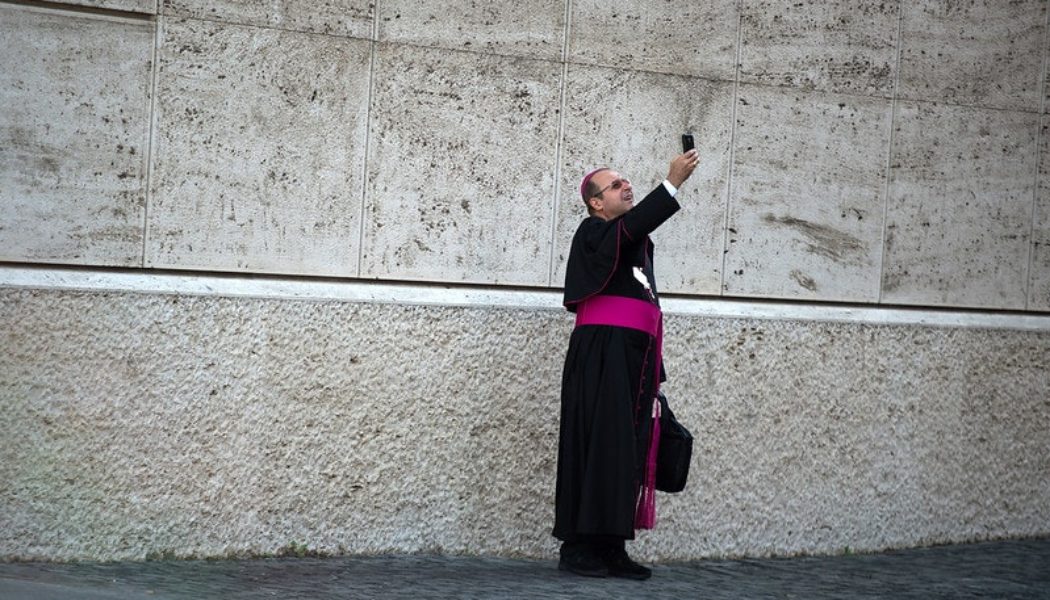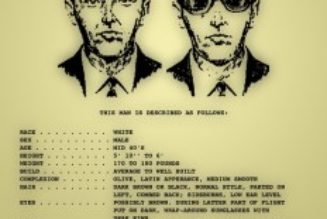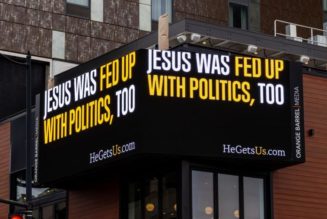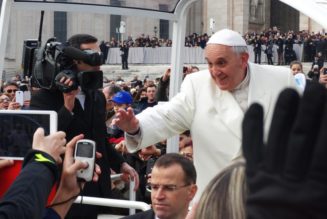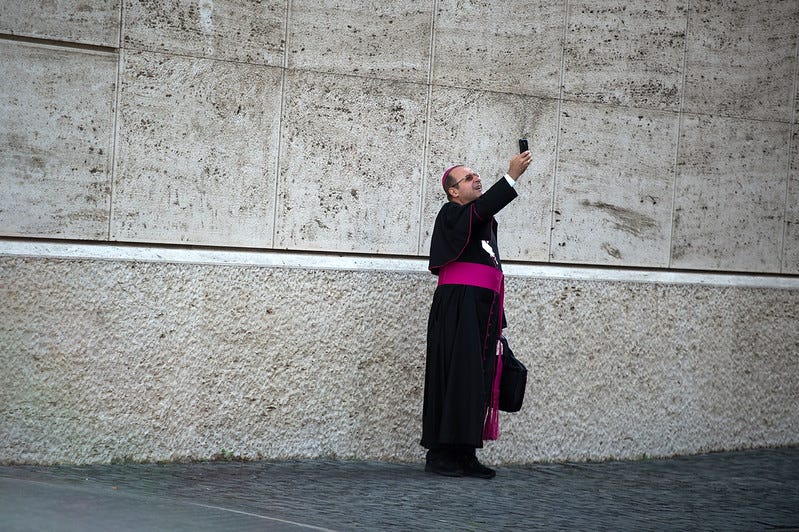
Pope Francis will offer the opening Mass of the Church’s global synod on synodality less than two months from now, and dioceses around the world will be expected to hold opening events — presumably Masses — on Sunday, Oct. 17.
After those Masses, dioceses will be expected to conduct a six-month period of “listening to all of the baptized,” in order to “consult the People of God.”
Following that, regional, national, and even continental phases of consultation and engagement will be held, before a meeting of bishops is held in Rome in October 2023.
The Vatican has not yet provided specific guidance for diocesan listening phases, but is expected to provide a kind of working document from which to work, “accompanied by a Questionnaire and a Vademecum with proposals for consultation in each local church.”
The prospect of a two-year global consultation process has been met with skepticism by some American Catholics, and has not yet garnered many expressions of enthusiasm from American bishops.
It’s likely that for some bishops, and for many working in diocesan chanceries, the prospect of hosting local listening sessions and consultation meetings feels like an additional burden at an inconvenient time, especially since the coronavirus pandemic is still making life difficult for Church administrators.
But the process is nevertheless set to happen, and pastors in some dioceses have been already asked to nominate parishioners for participation.
In each diocese, the process might prove to be a divisive disaster, or a boondoggle with low participation and limited value, just like the skeptics predict.
But it could be an experience that both diocesan bishops and local Catholics find useful. The difference between a fruitful local process and a disastrous one probably depends on understanding what the synod is, and what it ain’t.
A synod is not a legislative assembly or a doctrinal council. It can’t pass new policies or declare any dogmas. It is consultative — and consultation at the local level is only a very small piece of the global consultation that will precede the 2023 meeting. The 2023 meeting is also consultative — it will end with recommendations to the pope, who, in the end, is at liberty to do or say whatever seems best to him.
So if the synod has very little practical policy-making power, what’s the point?
Francis has seemed to suggest that the purpose of a synod is to be Catholic, in the company of other Catholics: To pray together, to talk about the faith together, to understand one another better, and to experience that the Church is called to be a real, personal, and authentic communion of its baptized members.
If those are the goals, here are a few suggestions that might lead to diocesan success:
Calibrate expectations. And set them low
The problems of the Church can’t be solved over the course of a few diocesan meetings. Even the problems of the diocesan Church can’t be solved that way.
Catholics dissenting from Catholic teaching may be dismayed to discover that doctrine can’t be reversed by a six-month process. Catholics with zealous liturgical views may be discouraged to find they can’t see them uniformly adopted during those meetings either.
The synod isn’t supposed to do those things, anyway.
But a local synod session can have real and attainable goals — ones that most bishops would judge worth pursuing. Among those goals: hearing from Catholics, and encouraging unity.
For bishops, the local synod process is an opportunity to learn from local Catholics what their own pastoral priorities should be — not by asking other people to set the bishop’s agenda, but by hearing what matters to Catholics, and how they think, and then using that information to develop plans for evangelization, catechesis, and pastoral care.
“Hearing from Catholics” is not a lofty goal, but it is an important and an attainable one, and it might be regarded as a sufficient expectation for the synod.
But bishops might also consider that bringing Catholics together can be a preliminary step in fostering greater unity in their dioceses.
Unity can’t be had by forcing it, or by offering an overly programmatic approach with a 36-point pastoral plan. But it can begin by seeing that Catholics who never talk to each other can learn one another’s names, and perhaps form the first stages of Christian friendship.
All are welcome. Or should be
Skeptics of the synodality synod have speculated that diocesan meeting will involve only the “usual suspects” — Catholics who work in the diocesan curia or parish ministries, “old guard” groups like the Knights of Columbus or the Legion of Mary, a few diocesan priests who get involved with everything, and a smattering of religious sisters.
Were that speculation to prove true, it would be a strike against the pope’s stated intentions. And any consultation process limited to the “usual suspects” is not likely to bear much fruit.
But if a critical local goal — which might enable a bishop to best understand the viewpoints of his own flock — is to hear from a broad swath of Catholics, bishops should set delegation guidelines which correspond to that goal.
That means trying to give Catholics from different theological, cultural, and liturgical camps a seat at the table, trying to hear from the racial and ethnic communities which exist in the diocese, and aiming to hear as much from non-practicing and rarely-practicing Catholics as from devout daily Massgoers.
Participation goals like that might necessitate several meetings.
Now, if the goal of the process was to develop some concrete plans or policies, that would seem a counterproductive approach — a bishop might be tempted to invite people with a baseline of viewpoints and opinions in common.
But if a diocesan bishop wants to better know his flock, he’ll find that understanding how non-practicing Catholics perceive the Church is no less important than knowing how religious sisters and diocesan priests see things.
Moreover, a bishop aiming to use the synod process to get to know his people ought probably be attentive to groups which have traditionally seen themselves as outside the diocesan circles of influence. Such groups are diverse enough to include both “traditionalist Catholics” at Extraordinary Form Masses and “Catholic Worker Catholics” getting arrested outside nuclear missile silos.
Set some ground rules. And some attitude expectations
It would not work for a diocesan bishop to invite broad cross-sections of Catholics to come together, in a parish hall or chancery conference room, and ask them to hash out consensus answers to questions about the Church’s life and ministry.
It would be a disaster, actually.
But it could work to bring together small and diverse groups of Catholics, encouraged to talk through issues with trained facilitators, while their thoughts are captured by notetakers. Groups like that could actually respond to each another, and even vote on a few summary statements designed to capture the sentiments of participants.
An exercise like that depends on setting ground rules, using something like a stripped-down version of Robert’s Rules of Order. It requires good facilitators able to ensure loud voices don’t dominate conversations. And it needs clarity that the bishop’s goal, and indeed, the entire Church’s goal, is to hear the genuine perspectives of Catholics, not to ensure that particular viewpoints “carry the day” or “win the motion.”
Bishops will probably need to explain frequently that the role of the group is not to change doctrine or pass binding motions, and that discussions which move in that direction will be redirected toward a more useful framework.
Such an exercise also requires offering the kind of spiritual and personal formation that encourages participants to offer their perspectives, and to hear the perspectives of others, as a measure of respect, as as a first step toward the Church’s better understanding of what Catholics really think. That isn’t always easy. But it might well prove valuable.
Bring the booze. Seriously
If a bishop wants Catholics not much like each other to discover that they like each other, he should lean on history’s most storied and illustrious social lubricant: alcohol.
And he might as well include food, too.
When shepherds go to Rome to participate in synods of bishops, they enjoy nice meals and fantastic bottles of wine. From there, great alliances and friendships sometimes begin. Catholics invited to a local gathering could have the same opportunity, if the Church wants to emphasize that their voice is important too.
Plus, little forms friendships like knocking back cocktails with a group, or having a few glasses of wine or beer.
And if the bishop aims to gain trust among local Catholics, well, showing that he’s a human being — and that he tends to recite long swaths of “Ferris Bueller” after a couple of beers — isn’t a bad way to begin.
Obviously, all appropriate caveats should be made here, so please presume that I’m making them. But, quite seriously — Catholics are a people who feast. And if the bishop is asking people to spend a day or two doing the hard work of talking and listening about experiences of faith, he might consider that he owes them a couple of beers and a nice steak.
Holding the whole thing in a decent hotel, underwritten by a local Catholic fraternal organization of some kind, isn’t a bad idea either.
You’ve got to pray just to make it today
Yes, that’s an MC Hammer reference. But it’s also true.
The entire notion of a synod is that is meant to be a common discernment of God’s will for the life of the Church. Of course, some Catholics at a diocesan synod will have rich interior lives, and some will pray rarely, or never. But inviting Catholics to pray together in Mass, in the divine office of the Church, and in even in some of the unique and customary expressions of various local communities is an invitation to the presence of the Holy Spirit at the center of the Church.
And that should be the foundation of any Catholic activity.
Yeah, but…
Skeptics of the synod on synodality are convinced it will eventually become a partisan, divisive, expensive exercise in Church politics. In Rome, or at the level of episcopal conferences, that may well prove true.
But whether it proves true at the local level is mostly up to the diocesan bishop.
The synodal consultations can demonstrate a willingness to listen, introduce a broad cross-section of Catholics to one another, build some bonds of social cohesion and trust, and invite Catholics to hear the Lord together.
Those things aren’t everything, but in many dioceses, they’re ain’t nothing. And if they prove attainable, the pope’s vision for a global mega-synod on synodality may seem worthwhile even to the most hardened skeptics.
At least in the dioceses willing to give it a shot. And if they don’t skimp on the drinks.
Join Our Telegram Group : Salvation & Prosperity
